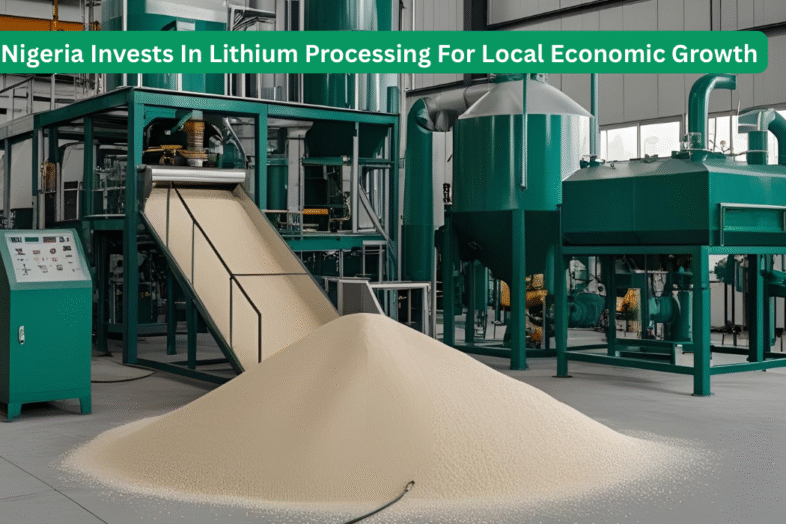
LAGOS, May 31 – Nigeria is poised to make a significant leap in its economic diversification efforts with the imminent commissioning of two major lithium processing plants this year. This strategic move, announced by the country’s Minister of Solid Minerals Development, Dele Alake, signals a pivotal shift from merely exporting raw minerals to adding substantial value domestically, fostering jobs, technology transfer, and manufacturing growth within the nation.
Minister Alake revealed on Sunday that a substantial $600 million lithium processing plant, strategically located near the Kaduna-Niger border, is slated for commissioning within the current quarter. This will be followed by the nearing completion of a $200 million lithium refinery on the outskirts of Abuja. Further bolstering this ambition, two additional processing plants are projected to come online in Nasarawa state, bordering the capital Abuja, before the third quarter of 2025.
“We are now focused on turning our mineral wealth into domestic economic value – jobs, technology, and manufacturing,” Minister Alake emphasized, articulating the core vision behind this ambitious undertaking.
The initiative is overwhelmingly supported by foreign investment, with over 80% of the funding for these four facilities being provided by Chinese firms. Prominent among these investors are Jiuling Lithium Mining Company and Canmax Technologies, according to separate announcements made by the governors of the respective states where the plants are situated. The significant Chinese backing underscores the growing international interest in Nigeria’s mineral potential and its commitment to developing its processing capabilities.
This strategic pivot towards in-country processing holds immense promise for Nigeria’s economic future. Currently, a substantial portion of the value derived from its vast mineral resources, including lithium, is realized outside the country through the export of raw materials. By refining lithium domestically, Nigeria aims to capture a larger share of the value chain, leading to a multiplier effect on its economy.
The establishment of these processing plants is expected to generate a considerable number of direct and indirect jobs, providing employment opportunities for a diverse range of skilled and semi-skilled workers. Beyond job creation, the projects are anticipated to facilitate the transfer of critical processing technologies and expertise to Nigerian professionals, fostering a more robust and self-reliant industrial sector.
Furthermore, the availability of processed lithium within Nigeria could catalyze the development of downstream industries, particularly in the burgeoning electric vehicle (EV) battery manufacturing sector and other high-tech industries. This could position Nigeria as a key player in the global renewable energy supply chain, attracting further investment and accelerating its industrialization drive.
The decision to focus on lithium is particularly timely, given the surging global demand for the mineral, driven by the rapid expansion of electric vehicles and renewable energy storage solutions. By establishing itself as a significant processing hub, Nigeria stands to capitalize on this demand, securing a strategic position in a critical global market.
While the funding from Chinese investors is crucial to kickstarting these projects, Nigeria’s long-term vision involves fostering a sustainable and indigenous lithium processing industry. This will likely entail further investment in research and development, capacity building, and the creation of a supportive regulatory environment to attract both local and international players.
The commissioning of these lithium processing plants marks a monumental step in Nigeria’s economic journey, signaling a clear intent to move beyond traditional resource extraction and embrace value addition as a cornerstone of its development strategy. As the world transitions towards a greener economy, Nigeria’s proactive investment in lithium processing positions it to play a vital role in the global energy future, while simultaneously unlocking significant economic growth and development opportunities for its citizens.









Add Comment